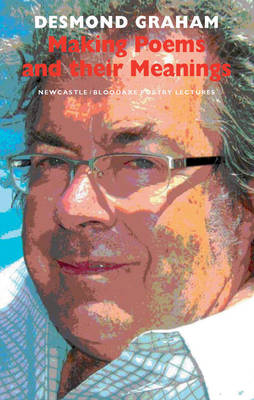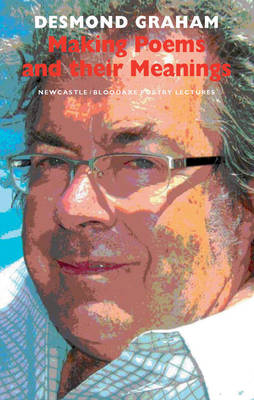
- Retrait gratuit dans votre magasin Club
- 7.000.000 titres dans notre catalogue
- Payer en toute sécurité
- Toujours un magasin près de chez vous
- Retrait gratuit dans votre magasin Club
- 7.000.000 titres dans notre catalogue
- Payer en toute sécurité
- Toujours un magasin près de chez vous
11,45 €
+ 22 points
Description
In this innovative series of public lectures at the University of Newcastle upon Tyne, leading contemporary poets speak about the craft and practice of poetry to audiences drawn from both the city and the university. The lectures are then published in book form by Bloodaxe, giving readers everywhere the opportunity to learn what the poets themselves think about their own subject. Desmond Graham reflects in three lectures on how poems are nourished and how reading can grow: Opening the Door: A chance encounter with a poem in a magazine, a neighbourly visit, a letter at the right moment - such things timed right make poetry. This lecture celebrates the unsung companions essential to the nourishment of poetry: the thoughtful friend, or the clear-headed reader on whom all writers depend; the spirits of the dead in the texts we read, or the labouring scholarly editors. The Unheard Prompter: Metre, rhythm, rhyme and line end - not just the tools of the poet but the poem's secret syntax which poet and reader hear whether they know it or not. This lecture demonstrates how poets can control meaning through formal elements: from Shakespeare's voice held in the iambs of his sonnets, to Wordsworth's arguing pronouns; from Herbert's irresistible orchestra, to the problems of punctuation in Gurney. No Less Than Bread; How does the poet write, thinking poetry a lie? How does poetry sustain the poet through impossibility? How does poetry, which solves nothing, offer a way of answering? Starting with Rozewicz and Radnoti, and moving from post-war European poetry back to David Jones and In Parenthesis, this final lecture asks what poems mean, what knowledge they carry, and how do we read them to find out? This is the sixth book in the "Newcastle/Bloodaxe Poetry" series.
Spécifications
Parties prenantes
- Auteur(s) :
- Editeur:
Contenu
- Nombre de pages :
- 64
- Langue:
- Anglais
- Collection :
- Tome:
- n° 6
Caractéristiques
- EAN:
- 9781852247614
- Date de parution :
- 23-03-07
- Format:
- Livre broché
- Format numérique:
- Trade paperback (VS)
- Dimensions :
- 168 mm x 214 mm
- Poids :
- 154 g







